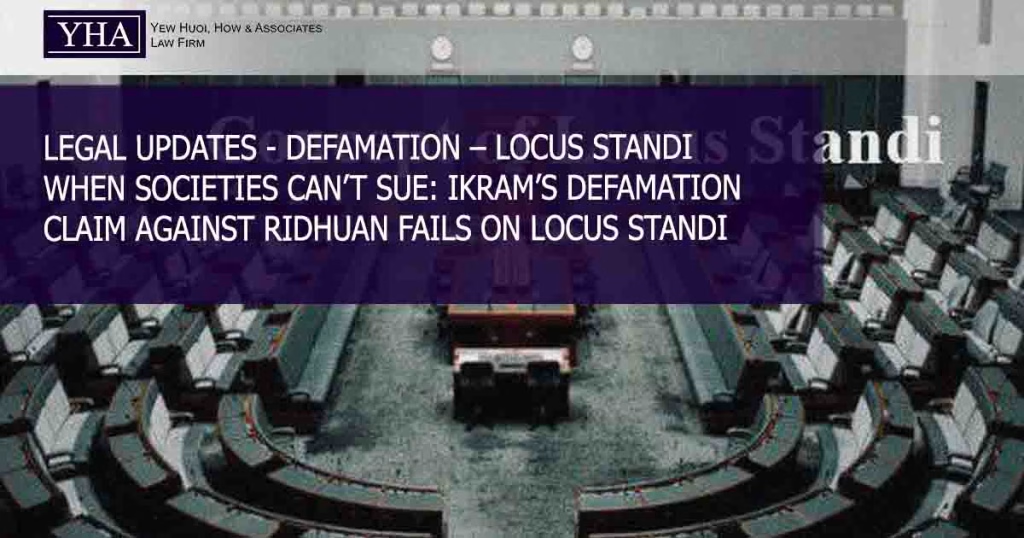1. Summary and Facts
In Mahdzir bin Md Isa (suing as Pegawai Awam Pertubuhan Ikram Malaysia) v Mohd Ridhuan Tee bin Abdullah [2025] 10 MLJ, the plaintiff a public officer of Pertubuhan Ikram Malaysia (IKRAM), sued the defendant, a public figure for a Facebook post alleging IKRAM and its member were traitors, anti-Islam and politically aligned against Islam. The plaintiff claimed these statements were false and harmed his and IKRAM’s reputation and regarded as defamation.
The defendant pleaded the defences of justification, fair comment, and qualified privilege.
2. Legal Issues
• Whether the Facebook statements were defamatory.
• Whether the plaintiff suing in his capacity as a public officer of Pertubuhan Ikram Malaysia (IKRAM), had the locus standi to commence a defamation action on behalf of the organisation.
• Whether the defendant was able to rely on the defences of justification, fair comment, and qualified privilege.
3. Court’s Findings
• The Court dismissed the plaintiff’s claim on the basis that the plaintiff lacked the locus standi to maintain an action for defamation.
• Nevertheless, the 3 elements of defamation were successfully established by the plaintiff:-
a) The three impugned postings referred to the plaintiff.
b) The impugned postings were published to a 3rd party by the defendant.
c) The words and statements were capable and conveyed a defamatory imputation.
• The defendant failed to rely on the pleaded defences:-
a. fair comment – lacked a proven factual basis.
b. justification – imputations unproven and based on unreliable.
c. qualified privilege – no mutual interest with Facebook readers.
4. Practical Implications
This decision affirms key principles on locus standi and defences in defamation:-
• any society registered under the Societies Act 1966, whether political or non-political has no legal standing to sue for defamation in its own capacity as it lacks the legal personality and reputation protected by defamation law.
• it illustrates that the court will strictly apply the requisite elements of each defence, and a defendant may only rely on such defences if all elements are clearly satisfied.
• The burden lies squarely on the defendant to adduce credible, admissible evidence to prove the truth of the statements or the existence of facts supporting the defence.

